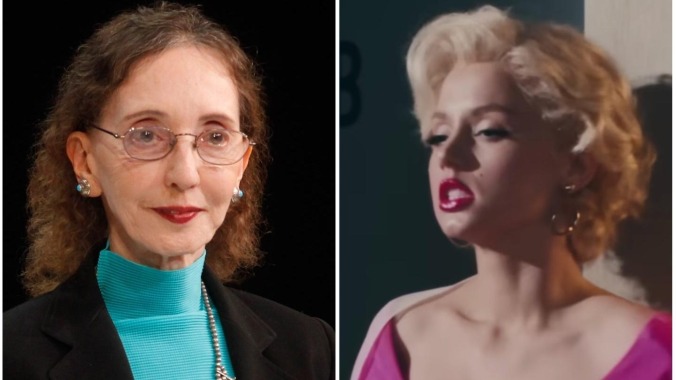Joyce Carol Oates weighs in on the brutality in Blonde adaptation: "Not for the faint of heart"
Joyce Carol Oates thinks Marilyn Monroe's real life was even worse than what's depicted in Andrew Dominik's Blonde

Joyce Carol Oates; Ana de Armas as Marilyn Monroe in Blonde Photo: Thos Robinson; Netflix/YouTube
In another press cycle, Blonde would be the most controversial film of the year. It took decades for Andrew Dominik to get his brutally graphic fictionalized version of Marilyn Monroe’s life off the ground, and several years after that to actually get it on screen. It’s all worth it to Joyce Carol Oates, author of the novel Blonde (and many outrageous tweets), who calls the film “a work of art.” “Andrew Dominik is a very idiosyncratic director, so he appropriated the subject and made it into his own vision,” she says in a new interview with The New Yorker.
 Keep scrolling for more great stories.
Keep scrolling for more great stories.
